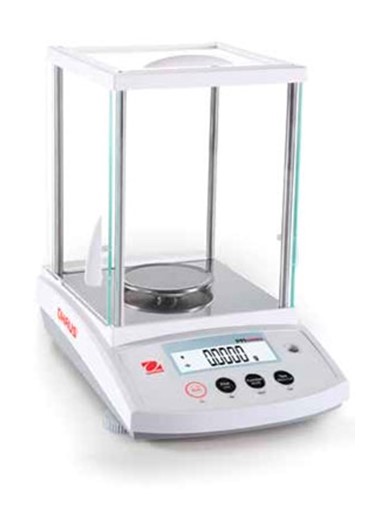Minister of Economy of Armenia - RBC: "We are watching not to fall under sanctions"
00:00 Advertisement 00:00 00:00 / 00:00 You can skip ads through More VideoMore VideoMore Video
“The rate of investment should be at least the same”
- With whom did you have meetings in Moscow and how actively was the topic of the special military operation and the effect that it has on bilateral economic ties discussed?
- I met with my colleagues from four ministries - economic development, industry and trade, digitalization (Ministry of Digital Development. -) and agriculture. Everywhere we had an extensive agenda and, of course, it was adjusted to the new situation. You know that our countries are strategic partners, RUSSIA is Armenia's largest trading partner. And for us, the current situation is a big challenge, but also some opportunities.
- How many citizens of Russia and Ukraine have come to Armenia since the beginning of the military operation? How long do you think they will stay in your country? Are there any restrictions on the duration of their stay in Armenia?
- As for the citizens of Ukraine, the Armenian diaspora mainly arrived, they returned. There are not very many Ukrainians by nationality, maybe a couple of thousand, no more. As for the flow from Russia, according to the latest data, it is about 75 thousand people, of which, again, about half have Armenian passports. We do not know how long they will stay in Armenia. When I flew to Russia from Armenia, there were a lot of Russians on the plane, who had flown to Yerevan some time ago and were now returning. That is, I will not dare to say that the mentioned figure is the number of people who decided to stay and live in Yerevan. As for time, one can live in Armenia for 180 days without special documents. But if you live longer, it means just a fine. All these regulations are determined by the legislation of the EAEU. In general, Armenia, you know,
- Are you not afraid that in your hospitable country some hotbeds of tension or violence will suddenly arise between citizens who came from Russia and Ukraine?
“We had a day when people who opposed the special military operation and people who supported it held two different rallies. And many wondered: how can this be? But we are a democratic country, and every person has the right to speak out.
Read on RBC Pro Pro How top management should behave in conditions of complete uncertainty ArticlesPro Harbingers of dismissal: how to understand that they are ready to say goodbye to you Instructions for Pro 180-degree turn:what and with whom Russia will trade nowPro Meta* in disgrace: what does it mean for business and will a VPN help Pro personal income tax in a new way:what companies should pay attention to after March 2022 Articles Pro The company has suspended business in Russia.What to prepare for her DIRECTOR Articles Pro These seven habits the leader needs to take controlThese Seven Habits Leaders Need to Take Control ofThese Seven Habits Leaders Need to Take Control of- In connection with the arrival of such a large number of Russians in Armenia, can we expect an increase in Russian investments in the Armenian economy?
— Russia is already the largest investor in Armenia. And we think that, based on many factors, the pace of investment should be at least the same. It is clear that the economic situation is getting a little more complicated due to sanctions and so on. But I think that the economic activity of our cooperation should not subside, but rather increase.
“We are very careful not to fall under sanctions”
— In March, about 27,000 new non-resident accounts were opened in Armenian commercial banks in different currencies. Most likely, the vast majority of these accounts are Russian, non-resident...
— It is, yes.
How are these accounts verified? In theory, can a Russian, who is on the sanctions lists in the European Union or in the United States , freely open an account in an Armenian bank?
— Our banks conduct thorough KYC, that is, the “know your client” procedure. Even deeper than we would like. In terms of customer service, they are probably too bureaucratic about it. But we understand them. They do not want to feel secondary sanctions on themselves. And therefore, KYC takes a little longer than usual. But the number of accounts that you mentioned indicates that banks still mostly open accounts. I almost never heard of cases where they refused to open an account. Sometimes it drags on, some of them try in several banks at the same time, but in the end everything works out.
— Is the card of the Russian “Mir” system accepted everywhere in Armenia now? Or are there refusals from Armenian banks?
- As far as I know, among the problems that the Russians face, there is none. That is, the Mir card is accepted at almost all payment points and at many ATMs too.
- If you had contacts with European or American representatives since the end of February, did they advise you not to help Russia circumvent sanctions? The leadership of Kazakhstan, for example, firmly stated that they would not help Russia to circumvent sanctions.
“In fact, we are watching very carefully so as not to fall under sanctions, because this does not correspond to our interests in any way. We want to work in a way that avoids this. Our European and American colleagues made it clear to us that they would not want to use negative tools against Armenia.
Photo: David Mdzinarishvili / REUTERS
- A subsidiary bank of the Russian VTB, VTB Armenia, operates in Armenia. Will he continue to work? What will happen to the Teghout copper-molybdenum deposit, which he owns?
— You know that VTB is also under sanctions in Armenia. Both the shareholder, and the creditor, and the main buyer are all under sanctions, and the deposit is now worth it. We are working on several development options, but in all of them there is one constant factor - the company must work. We are now in a situation where we cannot afford the luxury of closed mills. Therefore, we are ready to help shareholders and the company itself so that activities can be resumed as soon as possible.
The bank is under sanctions, it works, but, of course, not to the extent that it used to be. I think that there are several development scenarios in this sense: a merger with another bank, a buyout by another shareholder, new shareholders, etc. That is, these issues are also being actively discussed now, so that the company itself continues to work.
— And what are the options for the deposit? Will VTB have to sell it to some non-sanctioned person or company? Or maybe permission from the US authorities can be obtained?
- This is one of the options.
Economic ties between Russia and Armenia
Russia is Armenia's largest trading partner: Russia accounts for 31% of the Armenian external trade turnover in 2021 ( CHINA is in second place, 15%).
According to the Russian Federal Customs Service (FCS), Russian exports of goods to Armenia amounted to $1.89 billion in 2021, about 12% more than in pre-pandemic 2019 ($1.69 billion). However, imports from Armenia to Russia in 2021, according to the FCS, decreased to $712 million compared to $857 million in 2019.
Russian exports to Armenia are dominated by natural gas ($417 million in 2021) and oil products ($240 million), aluminum ($64 million), gold ($56 million), according to the FCS data. Imports from Armenia include spirits ($191 million), diamonds ($57 million) and tomatoes ($43 million).
The balance of direct investments from Russia in the capital of Armenian companies at the end of the third quarter of 2021 (the most recent data) amounted to just over $1 billion, follows from the data of the Bank of Russia.
The Armenian economy is heavily dependent on remittances from Russia. According to the Moody's rating agency, these transfers are equivalent to about 6% of Armenia's GDP per year. According to the Central Bank of Armenia, in 2021, receipts from individuals from Russia amounted to $866 million - 41% of all such cross-border money transfers to the country (the second largest source is the United States, $580 million). According to Moody's, "the high level of economic integration between Armenia and Russia suggests that the downturn in the Russian economy will have serious consequences for Armenia" - through the channels of lower exports to Russia and lower remittances from Russia.
“Companies are coming in, integrating very quickly”
— You mentioned 75,000 Russians who arrived. It's a lot. In your opinion, is this a burden on Armenia's infrastructure or its economy, or, conversely, an opportunity to revive, in particular, the consumer or rental sector?
- Renting a house is the most problematic issue. And now we are working to significantly increase the offer in this segment in order to bring down prices, because this is an additional burden for those people who are already in a difficult situation. And we would not want those people who are in Armenia to bear additional expenses because of such a jump in rates. And we seem to be able to normalize the situation, to slow down growth. I think that soon there will be good news - we will see a small, but price reduction.
— Can you tell us a little about these measures? You can't sell 100 new houses, can you?
— We work intensively with developers and realtors. And it is clear that not all apartments in new houses are inhabited. Developers proactively contact the owners of houses and apartments so that, if they do not intend to live in them in the near future, they can take this property under management and transfer it, let's say, to the rental housing market. For example, in Yerevan there are several tens of thousands of uninhabited apartments of secondary housing, not new ones, and realtors are also proactively looking for the owners of these houses. There are problems - some of them went to America, Russia, etc. But be that as it may, these apartments, which were simply locked up, are now being reopened, being refurbished to add value to the market.
- Many Russians who are now temporarily emigrating from the country belong to qualified specialists, to the creative class. Some of them complain on social networks that they lack some Moscow services in Armenia, such as food delivery, etc. Do you think such requests from Russians can have a positive impact on local businesses?
- As for food delivery, you probably know that before becoming a minister, I was the founder of one such service that worked in several countries. Food delivery is good, I assure you. But I understand that, for example, banking services in Russia are much more advanced. Interestingly, sometimes the Russians themselves solve all these problems. We see that in some sectors the guys are quickly expanding their business to Armenia too. For example, I know a girl Anastasia Faizulenova, she is the founder of the Checkme service. So she made such sales in Armenia that everyone was very surprised. We managed to sell voluntary HEALTH insurance to Armenian companies in such a way that better results cannot even be imagined.
We see these types of companies coming in and integrating very quickly, surprisingly quickly, I would say. And business in Armenia is very open to cooperation on its part, and this cooperation, of course, gives a good result.
“The Russian market has become freer and less competitive”
— This year, according to the official forecasts of the EAEU, it was expected that the association's economy would move to real growth. What is your forecast now?
— Last year we had a good growth, the trade turnover between all countries increased significantly. And we expected this growth to continue this year as well. But, look, due to the fact that many Western companies or some Western companies have decided to leave the Russian market, part of this burden is transferred to partners in the EAEU. Initially, the forecast is that there should be no decline in mutual trade. But there is a big question here - it is the predictability of the ruble exchange rate. Because somewhere around 60% of EXPORT contracts from Armenia were concluded in Russian rubles. And we see that exporters are very worried about the uncertainty of the ruble exchange rate. Although in January-February we had a huge growth: imports from Russia grew by 70%, and exports - by about 50% over these two months. But in March, we see a strong deviation, that is, a decrease in sales.
Vagan Kerobyan (Photo: provided by the press service)
— What are your expectations for money transfers made by migrants working in Russia to Armenia? This is about 6% of the country's GDP.
- Again, this is a complex issue. Our migrants sent money, but this is not very good money, I would say so. Because those people who receive this money, they did not work, did not create economic activity. In addition, migrants mainly worked in the construction industry in the Russian Federation, and there are a lot of vacancies in the construction industry in Armenia. We see that there is some decrease in labor migration, but we think that this will help the relevant area in Armenia, where we have an acute shortage of labor. So that's both pros and cons.
How the conflict in Ukraine affected the economies of post-Soviet countries Politics
— According to the Russian Central Bank, somewhere around 47% of Russian exports to Armenia in 2021 were carried out in US dollars, and about a third of Russian imports from Armenia were in dollars. How can the currency structure of these calculations change starting from 2022? And will the transition, expansion of trade in rubles, in general in national currencies, be a problem, given that confidence in the ruble is not increasing now?
— You said "in national currencies" - and this is the correct expression, because you do not need to exclude the Armenian dram or the Kazakh tenge from the possible payment methods. We think that the central banks of countries should create an appropriate environment for payments in national currencies with visibility or rate predictability to take place. Of course, central banks initially say that their main goal is to control inflation, but it is trade facilitation that affects the price level. If given the appropriate tools to free trade, let's say, then we can expect that costs will be lower or prices will be lower too.
- Last year, according to trade statistics, Armenia received from Russia natural gas for $414 million, oil products for about $270 million. Will Russian gas supplies continue after 2022? In what currency are they carried out and do the parties intend to change it?
- As far as I know, the last few payments were in rubles, but at the appropriate rate. That is, pricing is in dollars, but payment is now made in rubles, if I'm not mistaken. As for further questions in the field of pricing or payment, I think there is an understanding: we need to move towards national currencies. And I think that there is progress in this direction on the Russian side as well.
— Recently, the rating agency Moody's Investors Service lowered its forecast for the growth of the Armenian GDP from 5 to 1.8% this year. What are your forecasts for Armenia's GDP for this and next years?
- Initially, we included in the budget of Armenia the GDP growth for 2022 in the amount of 7%. But in the first two months we had a growth of 12%. We started this year very briskly, and we were aiming for much more than the 7% budgeted, and there were and are prerequisites for this. As for rating agencies, when there are many uncertainties, they begin to sharply reduce their forecasts. And I know that international financial institutions do this too. When we discuss the methodology with them, how they do it, they usually say: “Maybe such and such a scenario is being implemented.” That is, they always take the most negative options under uncertainties and put this into a new forecast, so to speak.
In fact, we do not change our goals. And we aim to achieve this 7% growth. It should also be taken into account that now, at a time of strong growth in food prices, the cost of the consumer basket is increasing, and large segments of the population may fall below the poverty line. In Armenia, the forecast is that poverty may increase from the current 27% to 42%. Of course, there is economic growth, but it is very difficult to ensure that economic growth is directed to the pockets of the vulnerable segments of the population. Typically, some people benefit from economic growth and others lose from inflation. And the task of the government is to make sure that economic growth changes the lives of the very poor.
- Last year, the trade turnover between Russia and Armenia amounted to $2.5 billion...
— $2.6 billion
— Sanctions against Russia can serve as a growth driver in some categories of trade? Or just make it worse?
— As I said, the fact that the Russian market has become freer and less competitive is, of course, a great opportunity. Of course, at the same time, there is a big problem in working with companies that have fallen under sanctions. But still, we must look in detail at specific cases and make sure that the risks are not realized, but the opportunities are realized. It helps a lot here that the team that works in our ministry, mostly from business, understands the essence of the issue and has the ability to solve these problems. My two deputy ministers come from Russia and worked in Russia for a long time. One of them made a career in the Ministry of Industry and Trade, the other in the government of the Moscow Region. They know Russia very well, communicate easily with their colleagues, and so do I. And I think that we are doing everything in order to be as useful as possible,
“The immediate effect of economic growth can be up to 30%”
- There has been a lot of news lately that negotiations are underway to normalize relations between Armenia and Turkey. Have you calculated any economic effect if the borders can be opened?
- Oh sure. Our team and the Institute of Economics are thinking about it and working on it. Plus, we also have international expert assessments on this matter. We expect that after the opening, the immediate effect of economic growth could be up to 30%. This is the immediate effect of unlocking communications. We see that now, in fact, import from Turkey is possible and allowed to Armenia, but export is not. That is, in this respect, we will only win. Of course, the political component is very important for us to have long-term peace. And now, together with neighboring countries, we have intensive negotiations on this issue. As you know, the Prime Minister of Armenia recently met with the President of the European Council and the President of Azerbaijan in Brussels and it was decided to establish a bilateral working group on delimitation and demarcation by the end of April.
“Turkey has become a hub for Russians through which they enter the world. Armenia could also become one if its airlines were not on the black list of the European Union. Are you taking any action to remove Armenian airlines from the black list?
We have recently launched two new airlines. One of them is already actively working, the second starts in May. One is a joint venture with a Moldovan airline, the other is a joint venture with Air Arabia. The state supports these new airlines so that they actively develop and operate. As for the hub, yes, we now have more than 20 flights to Russia every day, and one way or another, the passenger flow is quite large. And if there is demand, we will work to meet this demand.
— Do you have any idea when Armenian airlines will be able to fly to the EU?
— Now, in fact, a lot of airlines fly from the EU to Armenia. I cannot say the exact dates, we are working in this direction. It's really not easy.
Vahan Kerobyan was born on October 1, 1976 in Yerevan. In 1998 he graduated from the Faculty of Mathematics of the Yerevan State University.
He worked as a computer systems engineer, a specialist in the network information department in the information and publishing department under the government of Armenia, a specialist in Trustbank and HSBC Bank Armenia. From 2006 to 2012, he was the executive director of CJSC Star Divide.
In 2012, he founded and until 2020 headed Menu Group, a food delivery company operating in Armenia and Belarus.
Since November 2020 - Minister of Economy of Armenia.
Married, has five children.
Vagan Kerobyan (Photo: provided by the press service)



























































